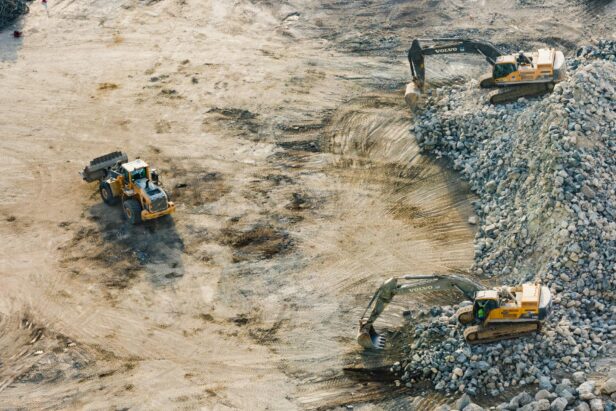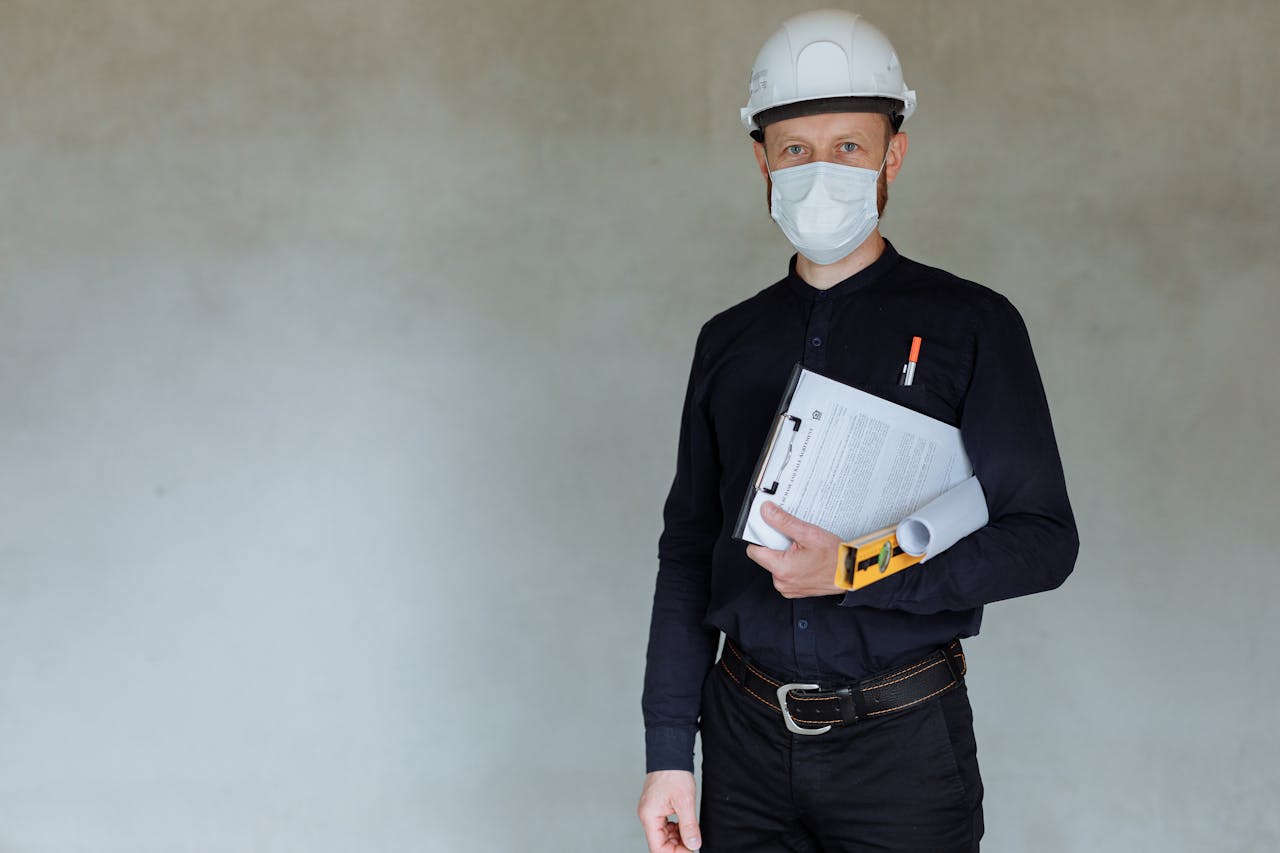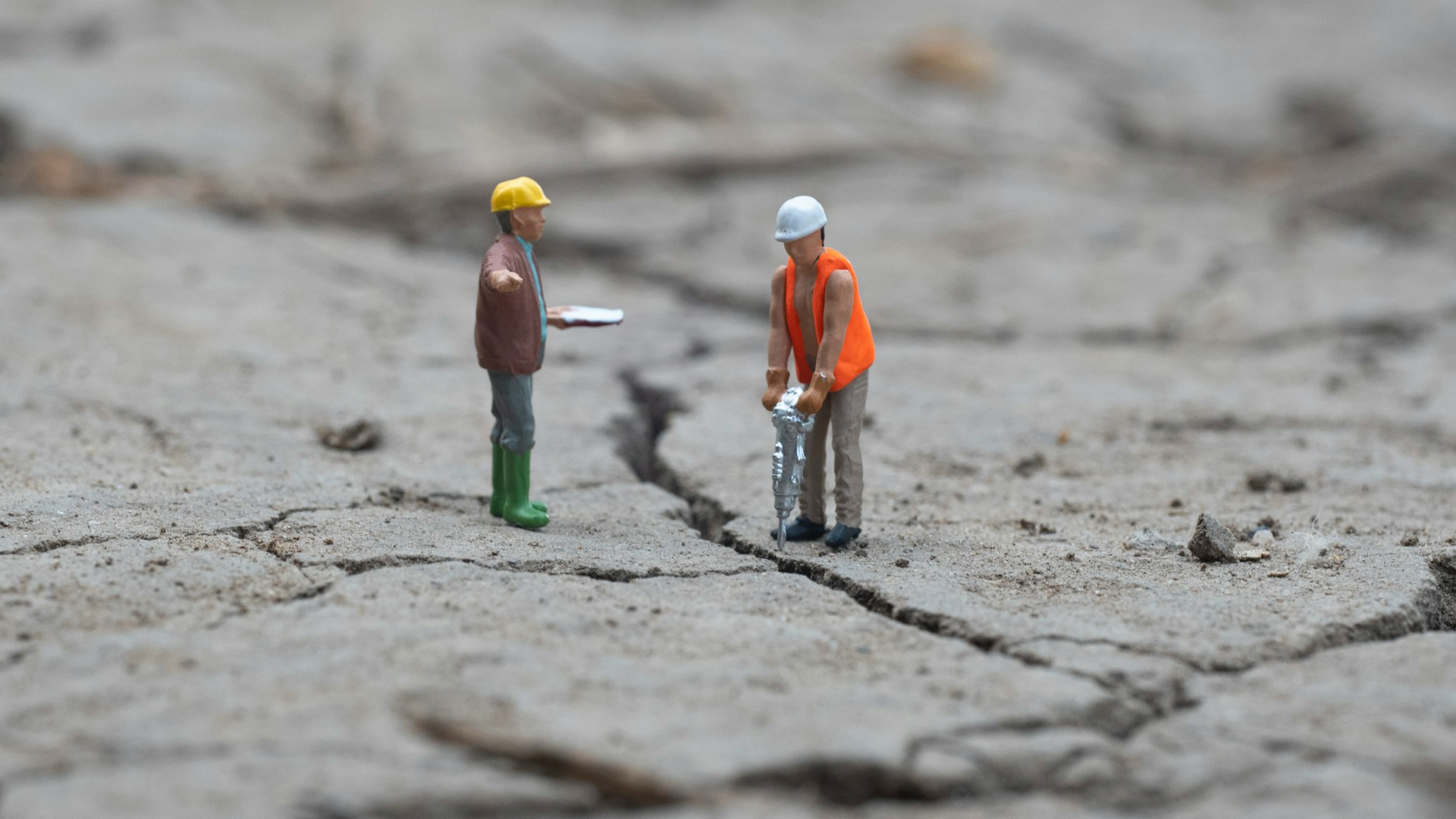At EB3 Construction, we know that choosing the right commercial site is one of the most important decisions a business can make. And in a city like Dallas, where the skyline shifts by the season and opportunity is always under construction, selecting the right site for your next commercial project is even more crucial.
Over the years, we’ve worked with developers, corporate leaders, and investors who all share the same goal: to plant their vision in the right place, at the right time. But with variables such as zoning, infrastructure, transit access, demographic trends, incentive programs at play, knowing where to break ground requires more than a gut feeling. It requires data, experience, and a deep understanding of how Dallas works, block by block.
This guide reflects what we’ve learned from building in one of the country’s most competitive commercial real estate markets. It’s a closer look at what makes Dallas so attractive, how site selection really works here, and the key market trends that are shaping development in 2025 and beyond.
Understanding Dallas Commercial Site Selection Analysis
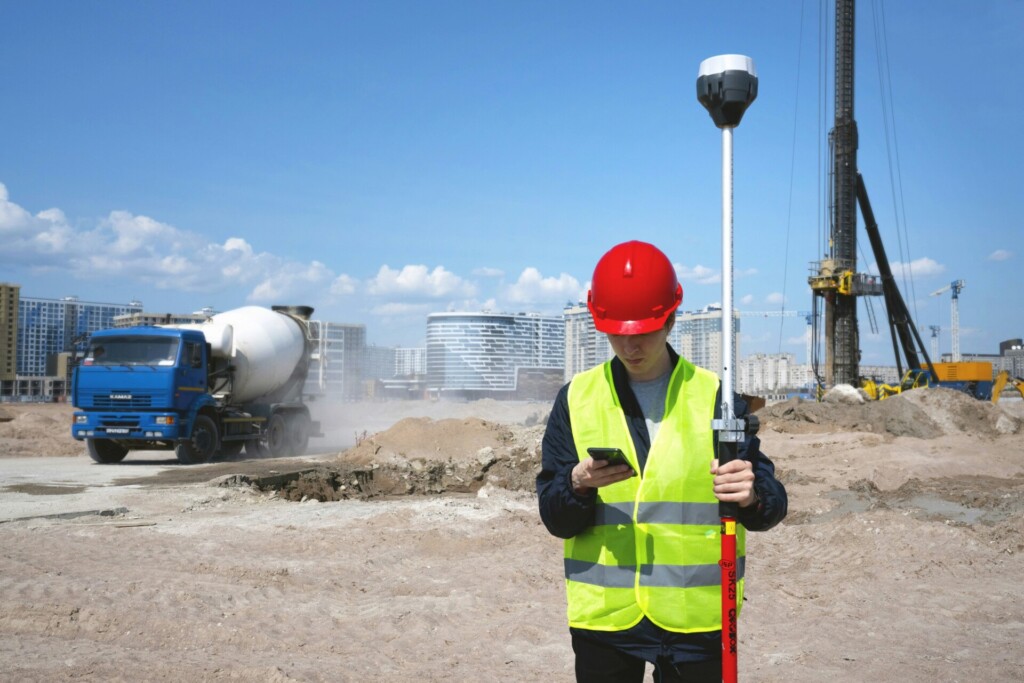
The Dallas commercial site selection analysis is a critical process for businesses and developers aiming to expand their presence in one of the nation’s fastest-growing metropolitan areas. This comprehensive evaluation-driven approach assesses potential locations based on strategic criteria to identify the most profitable sites for commercial development.
In 2025, the Dallas-Fort Worth market continues to demonstrate remarkable resilience and growth potential across multiple commercial real estate sectors. By examining current market conditions, future demographic trends, and economic projections, site selection analysis provides invaluable insights for decision-makers in this dynamic landscape.
Key components of Dallas commercial site selection include:
- Market performance across office, retail, industrial, and multifamily segments
- Population and employment growth trends
- Infrastructure developments and transit accessibility
- Subsidies and incentives
- Competitive landscape and industry clustering
With the DFW metroplex‘s continued expansion and diversification, thorough site selection analysis has become more crucial than ever. It enables investors and developers to identify prime locations that align with their specific business objectives while mitigating risks associated with rapidly evolving market dynamics.
By leveraging comprehensive data and local market expertise, businesses can make informed decisions that position them for long-term success in Dallas-Fort Worth’s thriving commercial real estate environment. As we explore the current state of the market, we’ll examine how these factors are shaping opportunities across various property types and submarkets in 2025.
What Are the Key Market Trends Influencing Dallas Commercial Site Selection?
The Dallas-Fort Worth commercial real estate market is experiencing several significant trends that are shaping site selection decisions for businesses and investors. Let’s examine some of the key factors at play:
Surging Investment Activity
Investment in DFW’s commercial real estate has seen a notable uptick. In Q1 2025, capital deployment reached an impressive $92.5 billion across major asset classes, marking a 17% increase year-over-year. This surge in investment signals strong confidence in the market’s potential and creates a competitive landscape for prime locations.
Office Sector Stabilization
After years of uncertainty, the office market is showing signs of recovery. The sector posted positive net absorption of 2.4 million square feet over the past year, aligning with national trends toward stabilization. This shift is particularly relevant for companies considering new office locations or expansions, as it may indicate more favorable leasing terms and a wider selection of quality spaces.
Retail Strength and Growth
The retail landscape in DFW continues to demonstrate exceptional resilience. The market leads the nation with 1.7 million square feet of positive net absorption, maintaining consistent annual growth above 4% since 2022. For businesses in the retail sector, this robust performance suggests ample opportunities for strategic site selection in high-traffic areas.
Industrial Market Equilibrium
DFW’s industrial sector has reached an inflection point, with vacancy rates stabilizing as supply and demand achieve better balance. This equilibrium benefits companies seeking warehouse, distribution, or manufacturing space, as it may lead to more predictable pricing and availability in the coming months.
Impact on Site Selection Decisions
These market trends collectively influence commercial site selection in several ways:
- Increased competition for prime locations across all sectors
- Potential for more favorable leasing terms in the office market
- Expanded opportunities in retail, particularly in high-growth areas
- More stable and predictable conditions for industrial site selection
Companies considering a move to or expansion within the Dallas-Fort Worth area should carefully evaluate these trends in relation to their specific needs. The current market conditions offer both opportunities and challenges, making it essential to partner with local real estate experts who can provide detailed submarket insights and guide strategic decision-making.
As 2025 approaches, keeping a close eye on these evolving trends will be crucial for businesses aiming to make informed site selection choices in this dynamic commercial real estate landscape.
Why is Dallas a Top Choice for Corporate Headquarters?

As a general contractor, we see firsthand why Dallas continues to thrive as a major hub for corporate headquarters. Site selection consultants consistently rank Dallas as a premier location, with the city recently topping a survey asking where consultants would place a new corporate headquarters. Dallas edged out other business-friendly cities like Charlotte, Atlanta, Nashville, and Raleigh.
This preference for Dallas is supported not just by survey results but is also evident in major developments across the metro area. A prime example is Goldman Sachs‘ massive $500 million campus now under construction in Victory Park. When completed in 2028, this strategic investment will become the firm’s largest office outside of New York, accommodating 5,000 employees.
The Goldman Sachs project showcases several key advantages that make Dallas so appealing for corporate relocations:
- Business-friendly environment: The Dallas City Council approved an $18 million economic incentive package to help secure the project.
- Central location: Dallas offers easy access to both coasts and international markets.
- Robust talent pipeline: The region’s universities provide a steady stream of skilled graduates.
- Lower cost of living: Employees can enjoy a high quality of life at a more affordable price point than other major metros.
As we coordinate construction projects across Dallas-Fort Worth, we see how the region’s pro-business climate, strategic location, and growing investments create an ideal environment for corporate growth. While we don’t work directly on site selection, our role in building out office spaces and campuses gives us unique insight into why more companies are choosing to call Dallas home.
| City | Incentive Details |
|---|---|
| Morgantown, West Virginia | $12,000 relocation cash incentive, free co-working space, social programming |
| Jacksonville, Illinois | $5,000 relocation prize, $300 in Chamber Bucks, three months of fiber broadband service |
| Texarkana, Texas | $5,000 relocation cash incentive, 25% tuition discount at Texas A&M, one-year membership to The Assembly Line |
| Hermitage, Pennsylvania | $5,000 relocation cash incentive, six months of coworking space, monthly coffee networking events |
| Columbus, Georgia | $5,000 relocation cash incentive, six months of co-working space at CoWork Columbus, coffee with the mayor, one-year membership to Young Professionals Program and Greater Columbus Chamber of Commerce |
The continued influx of major employers and corporate headquarters is driving demand for both commercial and residential construction throughout the metro area. As general contractors, we’re helping shape the evolving skyline and expanding suburbs to accommodate this growth. Dallas’ momentum as a corporate destination shows no signs of slowing, and we’re excited to play our part in building the infrastructure to support the region’s bright future.
How Does the Dallas Development Process Work for Commercial Sites?
The Dallas commercial development process follows a structured workflow managed by the Development Services Department. This multi-step journey takes projects from initial concept through final approval and occupancy. Here are the key stages:
Pre-Development Meetings
While optional, these meetings can greatly streamline the permitting process. Developers can discuss essential aspects of their projects with city officials, including:
- Utilities and infrastructure requirements
- Drainage considerations
- Platting needs
- Zoning regulations
- Easement dedication
These early discussions help identify potential issues before formal submissions, potentially saving time and resources in the future.
Prescreen and Intake
Before accepting a formal application, the city conducts a prescreen review. This step ensures that permit applications are complete and contain all necessary documentation. It serves as a quality control measure that helps prevent delays caused by incomplete submissions.
Site Development Review
This comprehensive stage examines various aspects of the proposed development:
- Platting: The process of subdividing property into legal lots or tracts.
- Water/Wastewater and Drainage: Analysis of the project’s impact on city systems.
- Arborist/Landscaping Assessment: Evaluation of the site’s green elements and preservation needs.
- Floodplain Regulation Compliance: Ensuring the development meets flood safety standards.
Building Permit Plan Review
Once site development is approved, the building permit review process begins. The city aims for an initial review turnaround of approximately 15 business days, though complex projects may take longer. Technical reviews cover multiple areas:
- Site plans
- Zoning compliance
- Building code requirements
- Electrical, mechanical, and plumbing systems
- Fire safety measures
- Landscaping plans
Developers should be prepared for potential revision requests and follow-up reviews during this stage.
Construction and Inspections
After permit approval, construction can begin. Various inspections are required throughout the building process to ensure compliance with approved plans and city codes. These may include foundation, framing, electrical, plumbing, and other specialized inspections depending on the project scope.
Certificate of Occupancy
The final step in the Dallas commercial development process is obtaining a Certificate of Occupancy (CO). This document confirms that the building meets all safety standards and zoning requirements. To receive a CO:
- All required inspections must be successfully completed
- The building must comply with its approved plans
- Any outstanding fees or requirements must be addressed
Only after receiving the Certificate of Occupancy can the building be legally occupied and put into use.
Simplifying the Process
Although the Dallas commercial development process is thorough, understanding its steps can help developers plan more effectively. Here are some practical tips:
- Engage with the Development Services Department early and often
- Consider using the city’s expedited review options for time-sensitive projects
- Maintain open communication with assigned reviewers throughout the process
- Be prepared with thorough, well-organized documentation at every stage
- Factor in time for potential revisions and resubmissions in project timelines
By approaching the process with patience and diligence, developers can navigate the Dallas commercial permitting landscape more smoothly, bringing their projects from concept to reality.
Conclusion: Strategic Approaches to Dallas Commercial Site Selection
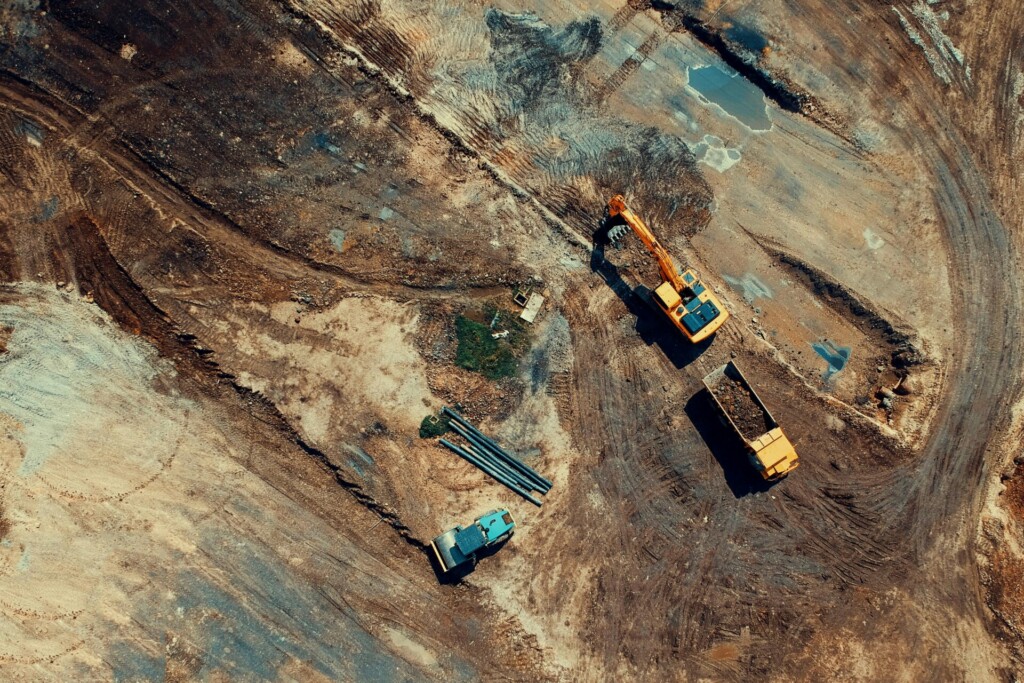
Successful Dallas commercial site selection requires a strategic, data-driven approach that considers current market conditions, regulatory requirements, and future growth potential. As we progress through 2025, the Dallas-Fort Worth market is demonstrating improved fundamentals across most sectors and robust development activity throughout the region. By leveraging professional site selection analysis, understanding the city’s development process, and evaluating locations based on business-specific needs, investors and developers can identify optimal sites that position commercial ventures for long-term success.
Our experience indicates that Dallas’s business-friendly environment, central location, and diverse economy continue to attract major corporate investments. This makes the DFW area a top choice for commercial development in the coming years. We have seen firsthand how strategic site selection can determine a project’s viability. That’s why we take a comprehensive approach, analyzing everything from zoning regulations to infrastructure, workforce availability, and future market projections.
As you consider your next commercial real estate venture in Dallas, remember that informed decision-making is key. The market is dynamic, but opportunities abound for those who approach site selection strategically. Whether you’re eyeing industrial spaces near major transportation hubs or mixed-use developments in up-and-coming neighborhoods, we’re here to guide you through the process.
Contact EB3 Construction today to discuss how we can help you navigate Dallas’s commercial real estate landscape and find the ideal site for your next project.

